On this post I’m not bragging about my grandchildren as I am wont to do – it’s all about me. I was thrilled last month to learn that I was being honored by the American Society of Journalists and Authors with its Career Achievement Award. The ASJA is an organization of more than 1300 freelance writers of nonfiction, all of whom have met the Society’s admission standards. The award was presented at the ASJA’s annual meeting at the Roosevelt Hotel in New York City. This was a really big deal for me. And so in a shameless blast of blowing my own horn, I am reproducing here the beautiful introduction made by fellow member Andrea Warren, a gifted author. (I have bought and given to my grandchildren several of her books for young people. Look them up!) I’m also posting my acceptance speech.
Here’s Andie’s generous introduction:
When I joined ASJA in 1987 and attended my first conference that year, one of the special people I met was Sally Wendkos Olds, this year’s Career Achievement Award Honoree.
Like everyone who meets Sally, I encountered a lovely woman who remembered my name, went out of her way to say hello and to talk to me whenever she saw me, and who was interested in me as a person. There’s a genuineness about Sally that you notice immediately. She is friendly and welcoming by nature. She is curious and generous, and genuinely concerned about the less fortunate. She sees a need and she addresses it, often by writing about it. She is a life-long learner who delights in travel, sometimes to the far outposts of the world.
For ASJA she has taken on the toughest of assignments. A member for over 40 years, she served as president in 1980-81 and launched the “I Read Banned Books” campaign and formed the Professional Rights Committee, which became the First Amendment Committee. She has served on numerous committees and has chaired at least a half dozen. She has moderated and served as a panelist on numerous ASJA conference panels. She helped ASJA explore print on demand, and helped edit both editions of the ASJA Handbook.
She began freelancing as a young mother in 1957 and sold her first article to appear in a major publication to Parents magazine ten years later. She went on to write more than 200 articles appearing in some of this country’s most prestigious publications, including such periodicals as Reader’s Digest, Parents, Woman’s Day, and The New York Times. Several of her articles have been reprinted in textbooks and anthologies.
She has appeared numerous times as a guest expert on radio and television and as a speaker to both general and professional audiences. Though she has written on every imaginable topic, the majority of her articles have addressed family life, psychology, human development, women’s roles and women’s rights, working parents, and helping the less fortunate.
Sally is the author or coauthor of eight books for the general public and three college textbooks on psychology and child and adult development. These books have been used by more than two million college students. She has made contributions so solid that several of her books have been in print for decades. The Complete Book of Breastfeeding, considered the classic in its field, was first published in 1972 and will soon be out in its fourth edition. In fact, two of Sally’s editors from Workman are with her today.
Sally has lived a most interesting life. She is a marathoner and has written about it, and in fact won one of her two outstanding article awards from ASJA for a piece on that topic. She has also used marathoning to raise money for cancer research. After her visit to Nepal, she raised money to build a library, install sanitary facilities, and to provide surgery for a child with cleft palate in a remote Nepal village she had visited. She belongs to many professional, political, and educational organizations. She has participated in oral history projects related to the Holocaust and to 9/11. And she has received a long list of awards in recognition of her service to others. One I will mention is being profiled in the 2006 book Feminists Who Changed America.
Sally is also the mother of three lovely, creative daughters, Nancy, Jennifer, and Dorri. Jenny lives in Germany and cannot be here today, but Nancy and Dorri are both here. Dorri, in fact, is a panelist on Sunday morning’s web design workshop.
Sally also has five grandchildren, ages 10 to 27, and her granddaughter Anna is also here today. Because Sally mines the earth she stands on, her most recent book is Super Granny: Great Stuff to Do with Your Grandkids. In connection with this book she blogs at http://omasally.blogspot.com.
Missing today is Mark Olds, Sally’s devoted husband of 54 years, who died this past year. Mark would have been incredibly proud to see her honored by us today. He always supported her work in ASJA and often attended our events with her.
The Career Achievement Award is the highest honor we bestow on one of our members. Sally was nominated by Bonnie Remsberg, her long-time ASJA friend, who began her nomination with the words: “This one is overdue.” I know we all second that. Please join me in greeting and congratulating Sally Wendkos Olds.
Andrea Warren
-------------------------------------
And here are my words of acceptance – and thanks:
Thank you, Andie. and thank you to the awards committee – and the conference committee – and all the other hard-working ASJA committees.
I am so grateful to the Society, not just for this wonderful award – but for having helped me in so many ways to be considered worthy of it.
Joining ASJA was by far the best professional decision I ever made. The Society has been a major player in my career – and my life.
I once went to a panel where a successful New York writer (not a member) was dispensing advice on breaking in to freelance writing. “Well,” she said, “you go to parties where you meet editors and you talk to them and you tell them your name and then when you call them they’ll remember you and they’ll buy your writing.” O-kay. I don’t know about all of you – but invitations to those parties never arrived in my mailbox, and that was so far from the way I got into freelance writing that I could have been living and writing on a different planet.
I wrote my first magazine article in 1957 as a new mother in Ohio, far from parties with important editors. I had read the articles in a free magazine from my diaper service and said “I can do better than that.” Well, they bought my submission – and sent me a check -- for five dollars -- two years later.
This did not seem like the most promising career, so I went on to have more babies and hold a string of part-time jobs. I’m happy that two of my “babies” are here today, my daughters Nancy and Dorri. and my “grand-baby,” Anna.
Some ten years later, in 1967 and now living in Illinois, I sold an article to Parents Magazine, and found that I loved the whole article-writing process – getting the idea, doing research, interviewing, organizing, and then putting words to paper.
I couldn’t get over the realization that I could get paid for doing something I liked so much – and for writing about issues I cared about.
So I signed up for a workshop taught by Richard Dunlop, a writer who kept talking about this wonderful organization called the Society of Magazine Writers.
And life suddenly looked like one big collection of articles. I sent out queries and manuscripts – and when they came back in my self-addressed stamped envelopes I ironed them – yes, I put them on an ironing board and ironed them so I wouldn’t have to retype them before sending them out again.
I kept elaborate charts about what was where. I wrote an article for a church magazine which brought payment of 100 -- copies of the magazine. Then I met with editors on a visit back to New York, and came home with assignments. And in 1969 I managed to amass the bare minimum of writing creds to squeak into the Society of Magazine Writers, which we now know as the American Society of Journalists and Authors.
Soon afterwards, readers of an article I had written about hyperactive children asked me to recommend a book to them and I couldn’t because there wasn’t any. I wanted to write this book and I wanted to find an agent who could help me do it.
Combing through the ASJA directory, I found Julian Bach, and a member he represented called him on my behalf. Julian taught me how to write a book proposal. He said it was worth putting time into a long one because he was sure the book would sell and the proposal would help me. He was right on both counts.
Meanwhile, Peter Workman, the president of Workman Publishing, became a father and told Julian he wanted to publish a new book about breastfeeding. Julian turned to me because of the writing I had done about health. He didn’t even know that I had nursed my own children.
The Complete Book of Breastfeeding was published in 1972, and the fourth edition will be published this summer. I’m delighted that Suzanne Rafer and Erin Klabunde, my editors for this edition, are here with us today.
Soon afterwards a college division editor found me -- through the Society directory. McGraw-Hill wanted to take a new approach to textbooks, teaming an academic with a writer for a popular audience.
I had never imagined writing a textbook – but for the next 25 years I went back and forth between textbook and trade writing, with good cross-pollination between the two.
Back to 1969 and my first Society meeting in New York, where I was now living: At dinner I happened to sit next to Mort Weisinger, one of our founders. Mort became my guru, and through our friendship, I learned that I could call fellow members with questions and get honest answers, and share both ups and downs in this crazy business.
When I had cover-line articles for six months in a row in leading women’s magazines, Mort kvelled over me. And then there was that really bad day, after two articles I had written on the basis of go-aheads were both turned down. Mort suggested that I list among my specialties in the directory, “Writing Queries.”
A better suggestion came some years later from another member, Mary-Scott Welch. When Scotty learned I would be trekking in Nepal, she told me I had to be in touch with her cousin, Marge Roche, an artist who had been there many times.
Marge and I went to Nepal together -- four times -- and ended up doing a book, with my words, her art. My agent at that time – Julian had since retired – loved the book but couldn’t place it anywhere. Who came to my rescue? ASJA!
In 1999 I had served on a committee looking into the new concept of print-on-demand publishing. After ASJA affiliated with one of these publishers, iUniverse, my book, A Balcony in Nepal, came into being. It meant a lot to me to bring the stories of the villagers I had lived among to the niche audience of readers who care about this disappearing way of life.
Besides these career-changing highlights, ASJA has helped me in so many other ways:
Members who became editors offered assignments. Members too busy to take an assignment passed them on to me. I found my present terrific agent, Linda Konner, through the society – she’s a longtime member. I can’t count the number of members who have gone out of their way to help me out, have shared contacts and sources and warnings, and have even shared that most secret of subjects in American society – money.
In a sense we’re all competitors, all trying to get our words in the same space. And yet I have never met a more collegial, more generous group of people.
I can honestly say that some of my best friends are ASJA members, and, friends, I am thrilled to be receiving this award from you. Thank you so much for this great honor.














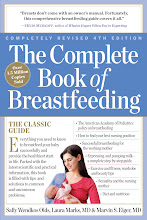







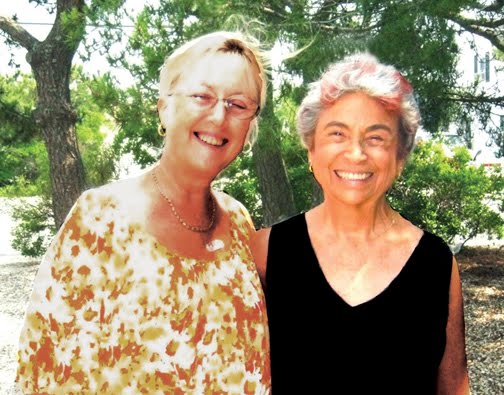.jpg)
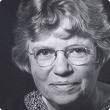


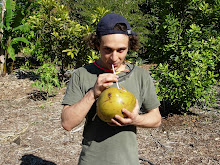

.jpg)
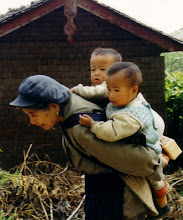.jpg)
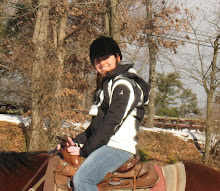.jpg)
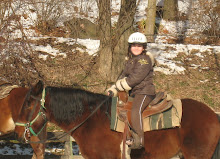.jpg)
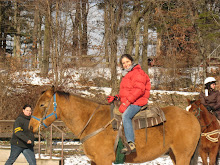

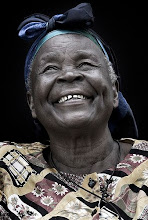

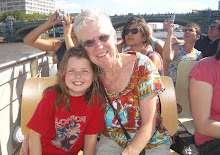.jpg)






.jpg)